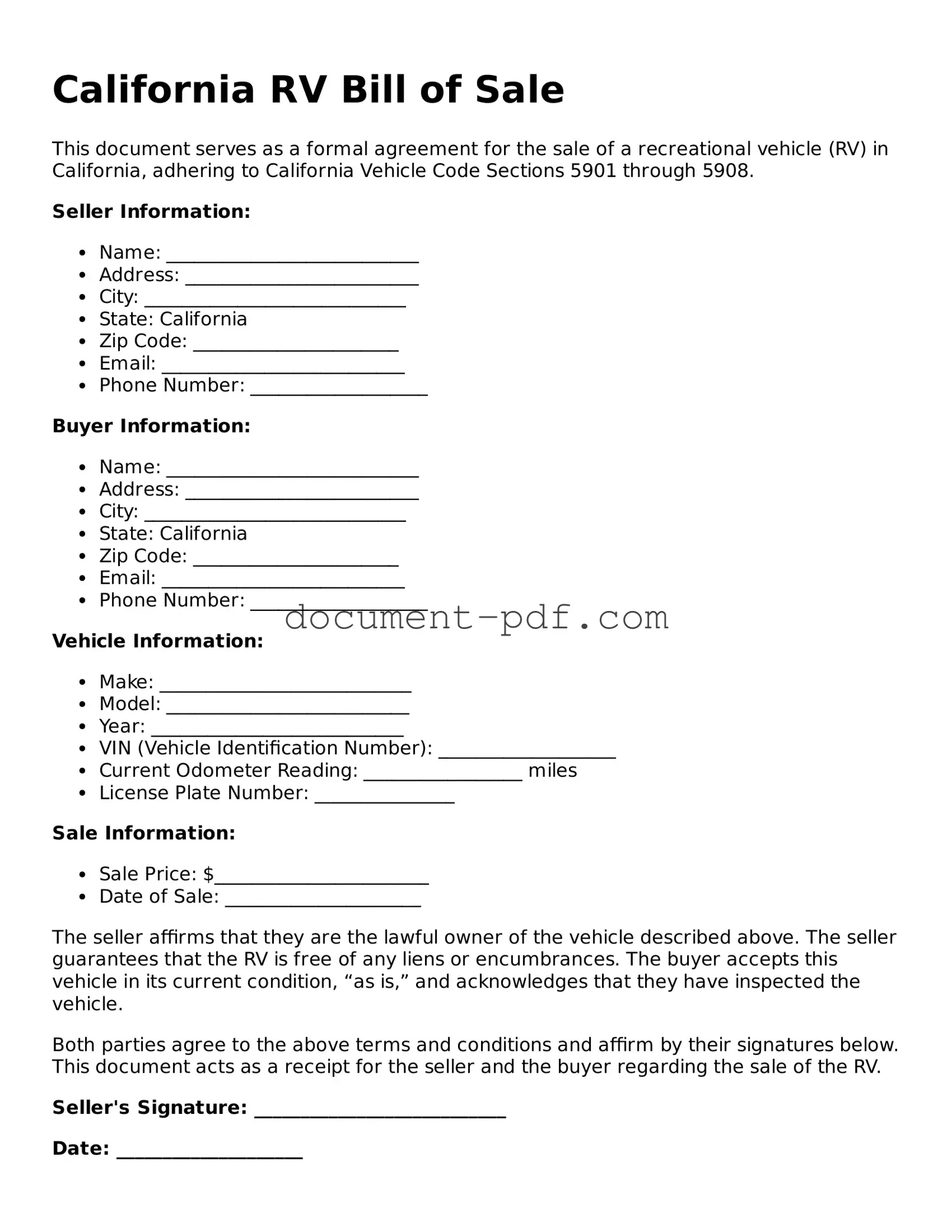The California Vehicle Bill of Sale is similar to the standard Bill of Sale used for various types of personal property transactions. This document serves as proof of the transfer of ownership from one individual to another. Like the RV Bill of Sale, it includes essential details such as the names of the buyer and seller, a description of the item being sold, and the sale price. Both documents help protect the interests of both parties by providing a written record of the transaction, which can be crucial in case of disputes or for future reference.
Another document that shares similarities with the RV Bill of Sale is the Boat Bill of Sale. Just as the RV Bill of Sale outlines the transfer of ownership for recreational vehicles, the Boat Bill of Sale does the same for watercraft. Both documents require specific information, including the vessel’s identification number, make, model, and year, along with the buyer’s and seller’s details. These documents not only facilitate the transfer but also serve as a safeguard against potential legal issues arising from the sale.
To ensure you are properly prepared for future planning, it's beneficial to explore the nuances of a comprehensive Durable Power of Attorney that outlines the powers granted to your designated agent.
The Motorcycle Bill of Sale closely resembles the RV Bill of Sale in its purpose and structure. This document is used when buying or selling motorcycles, capturing vital information such as the motorcycle's VIN, make, model, and year. Similar to the RV Bill of Sale, it includes the buyer's and seller's names and signatures, ensuring that both parties acknowledge the transaction. The Motorcycle Bill of Sale also provides a clear record, which can be beneficial for registration and title transfer processes.
A Car Bill of Sale is another document that functions similarly to the RV Bill of Sale. It serves as a legal record of the sale and includes pertinent details about the vehicle, such as the VIN, make, model, year, and odometer reading. The Car Bill of Sale, like its RV counterpart, protects both the buyer and seller by documenting the transaction. This record can be essential for title transfers and can help resolve any disputes that may arise after the sale.
The Trailer Bill of Sale is also comparable to the RV Bill of Sale, as it is specifically designed for the sale of trailers. This document captures key information about the trailer, including its VIN, make, model, and year, along with the buyer's and seller's details. Both documents serve the same fundamental purpose of documenting ownership transfer and protecting the interests of both parties involved in the transaction.
Lastly, the Equipment Bill of Sale shares similarities with the RV Bill of Sale, particularly when it comes to the sale of heavy machinery or equipment. This document outlines the specifics of the equipment being sold, including its make, model, and serial number. Like the RV Bill of Sale, it includes the names of the buyer and seller, ensuring that both parties have a clear understanding of the terms of the sale. This document provides legal protection and clarity in the ownership transfer process, similar to the RV Bill of Sale.

